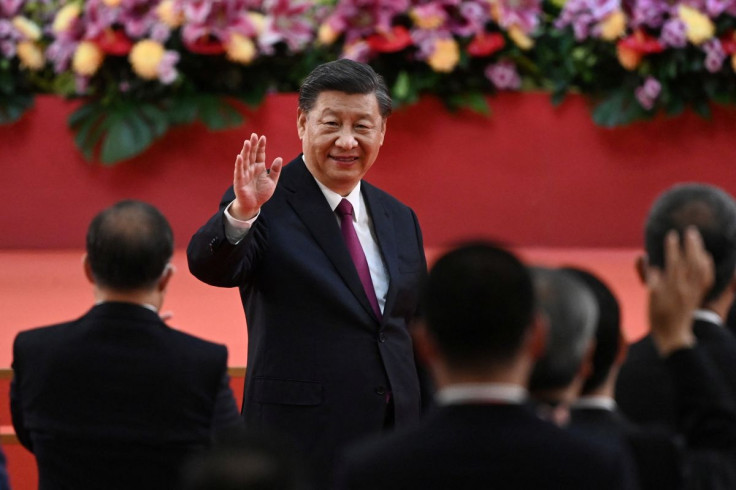China Sends Dire Warnings To The U.S. Over Taiwan—What Should Washington Do?

Beijing is sending a long list of dire warnings to the US over Taiwan these days, including one from the Chinese ambassador to the U.S. last week. It says, "if anyone tries to separate Taiwan from China and wants to challenge China's bottom line, PLA will take forceful measures to firmly safeguard national sovereignty and territorial integrity."
Then there's a PLA post titled "Preparing For War," which implies that Beijing is ready to go to war to unite Taiwan with the motherland.
China's dire warnings over Taiwan come during high-profile visits of U.S. officials, including a possible visit by Speaker Nancy Pelosi, as part of a planned Asian trip.
Apparently, China wants to end them, as they have the potential of a broad international recognition of Taiwan's independence.
But what do these warnings mean for the U.S.? How should Washington respond? Chuck Flint, Founder & President at Flint Consulting with extensive experience on Capitol Hill and U.S./China relations, thinks China is testing the resolve of the Biden Administration for Taiwan and the South China Sea.
"Members of Congress have been traveling to Taiwan for years. Beijing's demand that Speaker Pelosi cancels her trip is completely unreasonable and aimed at testing the Biden Administration," he told International Business Times in an email. "If the administration capitulates, it will further embolden CCP aggression in the South China Sea. There are parallels between the diplomatic challenges raised here and the spy plane incident of 2001."
Juscelino Colares, a professor of business law and co-director of the Frederick K. Cox International Law Center, goes a little further than that, arguing that it's about time for the U.S. to change policy towards China.
"Forget ‘strategic ambiguity,’ the long-held U.S. policy that favored the status quo in regard to the Peoples' Republic of China and Taiwan," he told IBT. "The policy boiled down to U.S. signaling political support for an autonomous Taiwan, backed up by granting the Taiwanese government access to U.S. military equipment purchases while stopping short of supporting any Taiwanese declaration of independence. A major share of the ambiguity came from the U.S. maintaining a close watch on Chinese saber-rattling without explicitly revealing U.S. moves should the Chinese decide to take the island."
Colareres thinks that the Biden team should learn from the geopolitical events of the last year and a half, which confirm that appeasement doesn't work with authoritarian regimes- It doesn't deter aggression, it encourages it.
"Appeasement did not work with Putin, who after receiving Biden's greenlight for Nord Stream 2 (for apparently no relevant concession), went ahead, invaded Ukraine and only increased Russia's control over that nation's territory," he explains. "To China's ruthless regime, America's unilateral concessions and even symbolic gestures, such as a misguided canceling of Speaker Pelosi's visit (who has a strong record on pushing back on China), will be read as utter weakness. Appeasement only puts Taiwan, the region, and U.S. interests in greater peril."
The bottom line: America cannot afford to be on the weak side on the Taiwan issue, as it will encourage rather than deter China's aggression beyond Taiwan to the South China Sea, which Beijing considers its sea.
© Copyright IBTimes 2024. All rights reserved.












